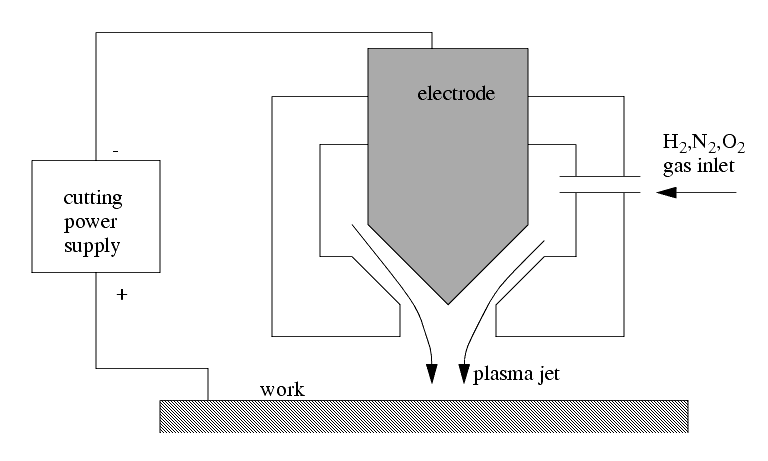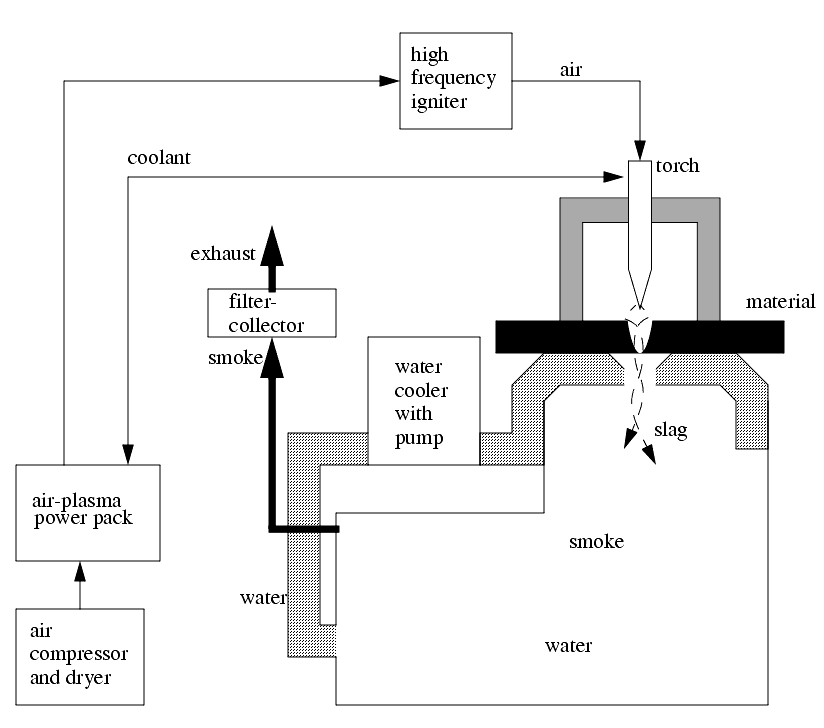64. AIR-PLASMA CUTTING
������������
Basic process - uses an ionized gas jet (plasma) to cut material
can be used on all materials that conduct electricity
can be used to cut materials resistant to oxy-fuel cutting,
Plasma is generated by exposing a gas stream to the electrons from an electric arc. High velocity electrons generated by the arc impact gas molecules, and ionize them.
The gas is forced through the nozzle, and the jet heats the metal, and blasts the molten metal away.
Advantages
- 3 to 5 times faster than conventional gas cutting
- can deal with any conducting material, including those not suited to normal gas cutting.
- works best on ranges from .03" to 1"
- More efficient than other types of gas plasma
- can cut up to .15 m/sec continuously.
Summary of Air-Plasma characteristics,
- mechanics of material removal - melting
- maximum temperature = 16,000C
- maximum velocity of plasma jet = 500 m/sec
- maximum mrr = 150 cm
3/min
- specific energy = 1000 W/cm
3/min
- power range = 2 to 200 KW
- maximum plate thickness = 200 mm (depends on material)
- cutting speed = 0.1 to 7.5 m/min
- critical parameters - voltage, current, electrode gap, gas flow rate, nozzle dimensions, melting temperature
- materials applications - all conducting materials
- shape application - cutting plates
- limitation - low accuracy

